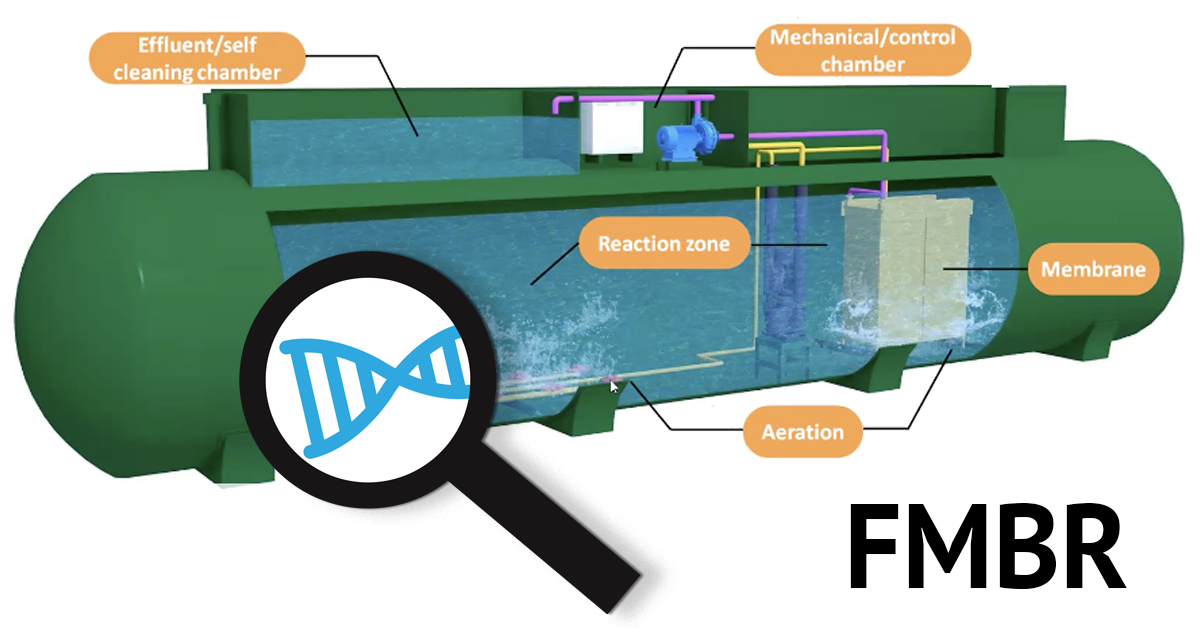July 15, 2021 – CHICAGO. Today, Jiangxi JDL Environmental Protection Co Ltd, (SHA: 688057) released the results of a DNA benchmarking study conducted by Microbe Detectives’ that quantifies the unique biological nutrient removal characteristics of JDL’s patented FMBR process.
The Facultative Membrane Bio-Reactor (FMBR) is unique biological wastewater treatment process that simultaneously removes carbon (C), nitrogen (N), and phosphorus (P) in a low DO condition (<0.5 mg/L), in one process step. This enables significant energy savings and a much smaller footprint, compared to traditional wastewater treatment processes which require multiple processing steps. Read more at watertrust.com/fmbr-study.
Since commissioning in November 2019, JDL’s FMBR Pilot Demonstration in the USA has replaced a legacy sequencing batch reactor (SBR), to process 5,000 GPD of wastewater generated by the Plymouth Massachusetts Municipal Airport and surrounding restaurants. The documented benefits include:
- 77% energy savings as compared to the replaced SBR system
- 65% reduction of biosolids volume requiring offsite disposal
- 75% smaller footprint
- 30 day installation
Microbe Detectives (MD) applied its standard 16S DNA sequencing methods, specialized for wastewater BNR analysis, to analyze 13 samples of the FMBR Pilot collected over one year. The purpose was to help JDL see, measure, and control the FMBR microbiome for optimum nutrient removal performance.
In a 2nd phase project, MD compared DNA data of FMBR Pilot samples, to MD DNA data of 675 samples from 18 municipal wastewater BNR processes, dispersed across New England, Midwest, Southwest, Rocky Mountains, and West Coast geographies in the USA. All data was anonymized.
DNA data confirmed the FMBR Pilot system mainly utilizes Simultaneous Nitrification/Denitrification (SND) bacteria to remove nitrogen, which requires 20-30% less oxygen and 40% less carbon than traditional methods. This translated into a 77% energy savings. Dechloromonas (avg. 8.3% in FMBR vs 1.0% in BNR benchmarks) and Pseudomonas (avg. 8.1% in FMBR vs 3.1% in BNR benchmarks) were the most abundant SNDs observed in the FMBR.
Tetrasphaera (avg. 4.0% in FMBR vs 2.4% in BNR benchmarks), a Denitrifying Phosphorus Accumulating Organism (DPAO), was also observed in high abundance in the FMBR. SND and DPAO bacteria, have stronger endogenous respiration. This translated into a reduction in sludge production by 50%. Combined with other factors, annual biosolids volume requiring offsite disposal was reduced by 65%.
|
|
|
|
|
Post time: Jul-16-2021



